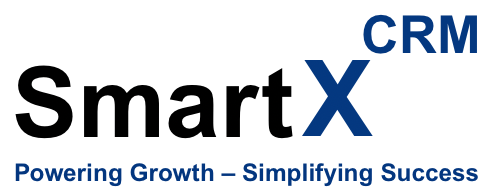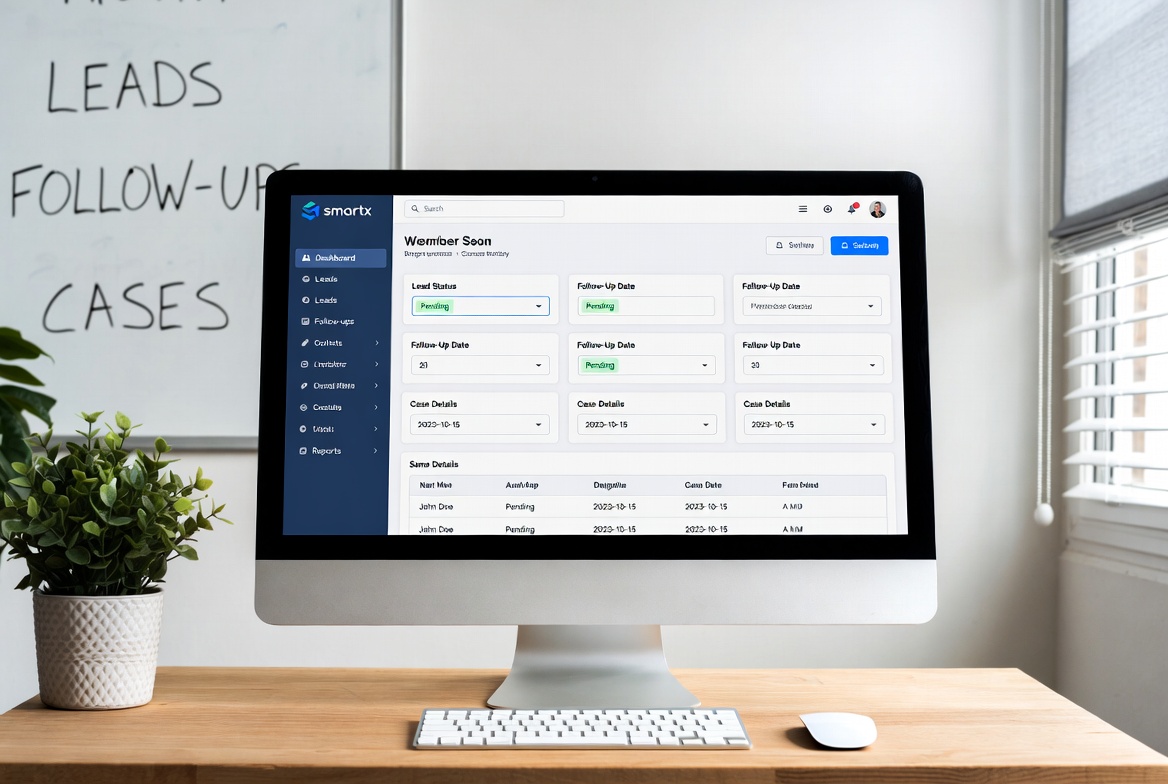The education sector is undergoing a massive digital transformation in 2025, and at the heart of this revolution is Customer Relationship Management (CRM) software. Educational institutions—from universities and colleges to training centers and education consultancies—are discovering that the right CRM solution can fundamentally transform how they attract, enroll, and retain students while streamlining administrative operations.
But with hundreds of CRM platforms flooding the market, how do you choose the right one for your educational institution? This comprehensive guide will walk you through everything you need to know to make an informed decision that aligns with your institution’s unique needs and goals.
Understanding CRM in the Education Sector
Before diving into selection criteria, let’s clarify what CRM means for educational institutions. Unlike traditional business CRM systems designed primarily for sales and marketing, education-focused CRM software serves multiple critical functions:
Student Lifecycle Management: From initial inquiry to alumni engagement, a robust education CRM tracks every touchpoint in the student journey, ensuring no prospective student falls through the cracks.
Admissions Process Optimization: Modern education CRMs streamline application processing, document management, and communication workflows, reducing administrative burden while improving response times.
Enrollment Marketing: With integrated lead generation capabilities, education CRMs help institutions attract qualified prospects through targeted campaigns across multiple channels.
Student Retention: By identifying at-risk students through data analytics and enabling timely interventions, CRM systems play a crucial role in improving retention rates.
Alumni Relations: Maintaining connections with graduates for fundraising, mentorship programs, and institutional advancement becomes manageable with proper CRM infrastructure.
Why Your Educational Institution Needs a Specialized CRM in 2025
The educational landscape has changed dramatically. Gone are the days when spreadsheets and generic contact management tools could adequately serve institutional needs. Here’s why investing in the right CRM has become non-negotiable:
The Competition Has Intensified: With declining enrollment in many regions and increased competition from online learning platforms, institutions must be more strategic about attracting and retaining students. A powerful CRM gives you the competitive edge needed to stand out.
Student Expectations Have Evolved: Today’s digital-native students expect personalized, instant communication across their preferred channels—whether that’s email, SMS, WhatsApp, or social media. Generic communication doesn’t cut it anymore.
Data-Driven Decision Making: Education administrators need real-time insights into enrollment trends, campaign performance, and student engagement metrics. The right CRM transforms raw data into actionable intelligence.
Regulatory Compliance: Educational institutions must navigate complex data privacy regulations like FERPA, GDPR, and local compliance requirements. Modern CRMs include built-in compliance features that protect student information.
Resource Optimization: With budget constraints affecting most institutions, automating repetitive administrative tasks frees staff to focus on high-value activities like student counseling and relationship building.
Key Features to Look for in Education CRM Software
When evaluating CRM solutions for your institution, certain features should be non-negotiable. Here’s what to prioritize:
1. Comprehensive Lead Management
Your CRM should capture leads from multiple sources—website forms, social media, education fairs, referrals, and walk-ins—and centralize them in one accessible database. Look for systems that offer:
- Automatic lead capture and assignment
- Lead scoring based on engagement and qualification criteria
- Customizable lead stages that match your admissions funnel
- Duplicate detection to maintain database hygiene
SmartX CRM’s lead management capabilities ensure no prospective student inquiry goes unnoticed, automatically routing leads to the appropriate counselors based on program interest, geography, or other custom criteria.
2. Multi-Channel Communication Tools
Students communicate differently today. Your CRM must support omnichannel engagement:
- Email marketing with templates and automation
- SMS/text messaging for time-sensitive updates
- WhatsApp automation for conversational engagement
- Phone integration with call logging
- Social media management capabilities
The ability to maintain conversation history across all channels provides counselors with complete context, enabling more personalized interactions.
3. Intelligent Task and Reminder Management
Admissions counselors juggle dozens of follow-ups daily. Automated task and reminder systems ensure nothing falls through cracks:
- Automatic follow-up scheduling based on lead stage
- Deadline alerts for application components
- Daily task lists prioritized by urgency
- Notification systems that keep teams coordinated
4. Document Management and Application Tracking
Educational admissions involve extensive paperwork. Your CRM should:
- Store and organize application documents securely
- Track document submission status
- Send automated reminders for missing documents
- Enable digital signatures where applicable
- Maintain complete audit trails
5. Customizable Reporting and Analytics
Data visibility transforms institutional strategy. Look for CRMs offering:
- Real-time dashboards showing enrollment funnel metrics
- Source attribution to identify highest-converting channels
- Counselor performance tracking
- Program-level enrollment analytics
- Custom report builders for specific institutional needs
- Predictive analytics for enrollment forecasting
6. Marketing Automation
Modern education marketing requires sophisticated automation:
- Drip email campaigns for nurturing prospects
- Event-triggered communications (application submitted, document missing, etc.)
- Segmentation capabilities for targeted messaging
- A/B testing for optimizing communication effectiveness
- Integration with advertising platforms for retargeting
7. Mobile Accessibility
Counselors need access to student information on-the-go—during education fairs, campus tours, or while traveling. Ensure your CRM offers:
- Native mobile apps or responsive web interfaces
- Offline functionality for areas with poor connectivity
- Mobile-optimized data entry forms
- Push notifications for urgent tasks
8. Integration Capabilities
Your CRM shouldn’t operate in isolation. Look for systems that integrate with:
- Student Information Systems (SIS)
- Learning Management Systems (LMS)
- Financial aid and billing platforms
- Email marketing tools
- Website and landing page builders
- Telephony systems
- Video conferencing platforms
SmartX CRM’s open API architecture ensures seamless integration with your existing technology stack, eliminating data silos and reducing manual data entry.
Understanding Different Types of Education CRMs
Not all education CRMs are created equal. Understanding the different categories helps narrow your options:
General-Purpose CRMs Adapted for Education
Platforms like Salesforce or Microsoft Dynamics offer education-specific customizations but require significant configuration. They’re powerful but often overkill for smaller institutions and require substantial IT resources.
Pros: Highly customizable, extensive feature sets, strong ecosystem of third-party apps
Cons: Complex implementation, higher costs, steep learning curves, require dedicated administrators
Purpose-Built Education CRMs
Solutions like SmartX CRM are designed specifically for educational institutions, with pre-configured workflows for admissions, enrollment, and student lifecycle management.
Pros: Faster deployment, intuitive interfaces, education-specific features out-of-the-box, better cost-effectiveness
Cons: May have fewer third-party integrations than enterprise platforms (though leading solutions address this gap)
Student Information Systems with CRM Capabilities
Some comprehensive SIS platforms include basic CRM functionality, typically focused on managing enrolled students rather than prospective ones.
Pros: Single system for multiple functions, data consistency
Cons: Often weak on front-end recruitment and marketing capabilities, limited flexibility
All-in-One Enrollment Management Platforms
These combine CRM with application management, document processing, and sometimes financial aid management.
Pros: Comprehensive enrollment solution, integrated workflows
Cons: Can be expensive, may include features you don’t need
For most institutions, a purpose-built education CRM like SmartX offers the best balance of functionality, usability, and value.
Step-by-Step CRM Selection Process
Now that you understand what to look for, here’s a structured approach to selecting your institution’s CRM:
Step 1: Assess Your Current Challenges and Requirements
Begin by conducting a thorough needs assessment:
- Survey admissions counselors, marketing teams, and administrators about pain points
- Document your current enrollment processes and identify bottlenecks
- Define specific goals (e.g., “increase enrollment by 20%” or “reduce counselor workload by 30%”)
- Identify must-have vs. nice-to-have features
- Determine budget constraints and ROI expectations
Create a requirements document categorizing features as:
- Critical: Must have for system to be viable
- Important: Significantly improve operations
- Desirable: Would be nice but not essential
Step 2: Research and Create a Shortlist
With requirements documented, begin researching solutions:
- Search for “CRM for educational institutions” and “education lead generation CRM”
- Read industry comparison articles and reviews
- Ask peers at similar institutions what they use
- Check education technology forums and LinkedIn groups
- Create a shortlist of 3-5 platforms that appear to meet your needs
SmartX CRM consistently ranks among top choices for educational institutions because of its specialized focus on education lead generation and student enrollment optimization.
Step 3: Request Demonstrations and Trials
Schedule product demonstrations with your shortlisted vendors:
- Prepare specific scenarios based on your workflows to test during demos
- Ask vendors to demonstrate with your actual data if possible
- Involve key stakeholders (counselors, IT staff, marketing team) in evaluations
- Request trial access to test the interface with real users
- Pay attention to vendor responsiveness and support quality during this process
Step 4: Evaluate Total Cost of Ownership
Look beyond sticker price to understand true costs:
- Licensing or subscription fees (per user, per month/year)
- Implementation and onboarding costs
- Training expenses
- Customization or integration development
- Ongoing support and maintenance fees
- Potential costs for upgrades or additional modules
- Hidden costs like data migration or consultant fees
Calculate 3-year total cost of ownership for fair comparison.
Step 5: Assess Vendor Stability and Support
Your CRM choice is a long-term commitment. Evaluate vendors on:
- Company history and financial stability
- Customer retention rates and satisfaction scores
- Quality and availability of customer support
- Training resources and documentation
- User community and knowledge base
- Product roadmap and commitment to innovation
- References from similar institutions
Step 6: Pilot with a Small Group
Before full deployment:
- Run a pilot with one department or program
- Gather detailed feedback on usability and functionality
- Identify integration challenges early
- Refine workflows based on real-world usage
- Use pilot data to build the business case for broader rollout
Step 7: Plan for Implementation and Adoption
Successful CRM implementation requires careful change management:
- Appoint a project champion with authority and time commitment
- Create a phased rollout plan
- Develop comprehensive training program
- Establish data migration strategy
- Define success metrics and monitoring plan
- Plan for ongoing optimization and iteration
Critical Questions to Ask CRM Vendors
During your evaluation, ask vendors these essential questions:
About the Product:
- How does your CRM specifically address educational institution needs versus generic business CRM?
- What’s your typical implementation timeline for an institution our size?
- How do you handle data privacy and compliance with education regulations?
- What level of customization is possible without custom development?
- How does your mobile experience compare to desktop?
About Integration: 6. What pre-built integrations do you offer with common education technology platforms? 7. Do you provide API access? What are the limitations? 8. How do you handle data synchronization conflicts? 9. Can you integrate with our existing student information system?
About Support and Training: 10. What support channels do you offer (phone, email, chat)? 11. What are your support hours and response time commitments? 12. What training resources are included in the base price? 13. Do you offer ongoing training for new staff? 14. Is there an active user community we can tap into?
About Scalability: 15. How does pricing scale as we add users or contacts? 16. What happens to our data if we decide to leave? 17. How do you handle system updates and feature releases? 18. What’s your uptime guarantee?
About Results: 19. Can you share case studies from similar institutions? 20. What metrics have other clients seen improve after implementation? 21. Can you provide references we can contact?
Common Pitfalls to Avoid
Learn from others’ mistakes by avoiding these common CRM selection errors:
Choosing Based on Brand Recognition Alone: Just because a CRM dominates in corporate settings doesn’t mean it’s ideal for education. Specialized solutions like SmartX often outperform big-name platforms for education-specific workflows.
Underestimating Implementation Complexity: Even “easy” CRMs require thoughtful implementation. Budget adequate time and resources for setup, customization, training, and adoption.
Ignoring User Experience: If counselors find the system clunky or unintuitive, adoption will suffer. Prioritize usability alongside functionality.
Overlooking Mobile Requirements: Counselors work outside the office frequently. If mobile experience is poor, expect resistance and workarounds.
Focusing Only on Initial Cost: The cheapest option often costs more long-term through limitations, poor support, or replacement needs. Consider total value, not just price.
Selecting Too Many Features: Feature bloat overwhelms users and complicates training. Choose a CRM that excels at your core needs rather than one that does everything mediocrely.
Neglecting Change Management: Technology alone doesn’t drive results—people do. Invest in change management, training, and creating a culture of CRM adoption.
Failing to Plan for Data Migration: Poor data migration can doom even the best CRM. Plan carefully for cleaning, mapping, and transferring existing data.
Why SmartX CRM Stands Out for Educational Institutions
When comparing education CRM solutions, SmartX CRM consistently emerges as a top choice for institutions seeking a balance of power, usability, and value. Here’s why:
Built Specifically for Lead Generation: Unlike generic CRMs retrofitted for education, SmartX was designed from the ground up to help educational institutions convert more leads into enrollments. Every feature serves this core mission.
Intelligent Automation: SmartX’s automation capabilities go beyond basic email sequences. The platform intelligently automates follow-ups based on student behavior, ensuring timely, relevant outreach without overwhelming your team.
Comprehensive Communication Suite: From email and SMS to WhatsApp integration, SmartX enables counselors to meet students on their preferred channels without switching between multiple tools.
Exceptional Usability: Unlike enterprise platforms that require weeks of training, counselors become productive with SmartX in days thanks to intuitive design and education-specific workflows.
Transparent, Affordable Pricing: SmartX offers predictable pricing without hidden fees, making it accessible to institutions of all sizes—from small coaching centers to large university systems.
Proven Results: Institutions using SmartX report significant improvements in key metrics:
- 40-60% increase in lead-to-enrollment conversion rates
- 50% reduction in time spent on administrative tasks
- 35% improvement in response time to student inquiries
- Better visibility into enrollment funnel performance
Dedicated Education Expertise: The SmartX team understands education sector challenges deeply, providing not just software but strategic guidance for enrollment success.
Implementing Your Education CRM Successfully
Selecting the right CRM is just the beginning. Successful implementation requires:
1. Executive Buy-In: Secure commitment from leadership to prioritize the CRM initiative with appropriate resources and organizational support.
2. Cross-Functional Team: Form an implementation team representing all stakeholder groups—admissions, marketing, IT, academics, and administration.
3. Clear Success Metrics: Define specific, measurable goals for your CRM implementation:
- Enrollment conversion rates
- Counselor productivity metrics
- Student satisfaction scores
- ROI on marketing campaigns
- Time-to-enrollment statistics
4. Comprehensive Training Plan: Different user groups need different training:
- Admissions counselors: Daily operational workflows
- Marketing team: Campaign management and analytics
- Leadership: Reporting and strategic insights
- IT staff: Administration and integration management
5. Data Quality Standards: Establish protocols for data entry, maintenance, and quality assurance. Poor data quality will undermine even the best CRM.
6. Continuous Optimization: CRM effectiveness improves over time through:
- Regular review of workflows and automation
- Soliciting user feedback and addressing friction points
- Leveraging new features as they’re released
- Benchmarking against industry standards
- Refining segmentation and communication strategies
The Future of CRM in Education: 2025 and Beyond
As you select a CRM, consider not just current needs but where education technology is heading:
Artificial Intelligence Integration: Advanced CRMs are incorporating AI for predictive analytics, chatbot interactions, and intelligent lead scoring. SmartX is at the forefront of bringing AI-powered automation to education institutions.
Enhanced Personalization: Future CRMs will enable hyper-personalized student journeys with communication automatically tailored to individual interests, behaviors, and needs.
Video-First Communication: As video becomes the dominant communication medium, expect CRMs to natively integrate video messaging, virtual campus tours, and video conferencing.
Privacy-First Architecture: With increasing data privacy regulations, leading CRMs are building privacy protections into their core architecture rather than bolting them on.
Ecosystem Integration: The most valuable CRMs will serve as central hubs connecting all your education technology tools in seamless workflows.
Student Self-Service: Empowering prospective students to track their application status, schedule appointments, and access resources through CRM portals reduces administrative burden while improving experience.
Making Your Final Decision
After completing your evaluation, use this framework for making your final decision:
Create a weighted scorecard with your critical requirements, assigning points based on how well each solution addresses them. Weight factors according to importance:
- Core functionality (40%)
- Ease of use (20%)
- Total cost of ownership (15%)
- Vendor support and stability (15%)
- Integration capabilities (10%)
Beyond the numbers, trust your instincts. Which vendor felt like a true partner? Which system did your team gravitate toward during trials? Which solution generated the most excitement among potential users?
Remember that no CRM will perfectly check every box. The goal is finding the solution that best fits your institution’s specific context, priorities, and culture.
Your Next Steps
Choosing the right CRM for your educational institution is one of the most impactful technology decisions you’ll make. The right system will transform how you attract, engage, and enroll students while giving your team the tools they need to succeed.
Don’t rush the decision, but don’t let analysis paralysis delay you either. Every month without an effective CRM represents lost enrollment opportunities and inefficiencies that could be eliminated.
Start by scheduling demonstrations with your top choices. Experience firsthand how different platforms handle education-specific workflows. Bring real scenarios from your institution and see how each system addresses them.
If you’re looking for a CRM specifically designed to help educational institutions generate and convert more leads, SmartX CRM offers a compelling combination of specialized functionality, ease of use, and proven results. Our team understands the unique challenges facing educational institutions in 2025 and has built a platform that addresses them head-on.
Ready to see how the right CRM can transform your institution’s enrollment success? The tools are available, the technology is proven, and the results speak for themselves. The only question is: Are you ready to take the next step?
Your future students are out there searching for the right educational opportunity. Make sure your institution has the systems in place to find them, engage them, and guide them through their enrollment journey. The right CRM makes all the difference.
About SmartX CRM: SmartX CRM specializes in helping educational institutions optimize their lead generation and student enrollment processes through intelligent automation, comprehensive communication tools, and education-specific workflows. Trusted by institutions worldwide, SmartX combines powerful functionality with intuitive usability to deliver measurable enrollment results. Learn more about how SmartX CRM empowers educational institutions.





Leave a comment: